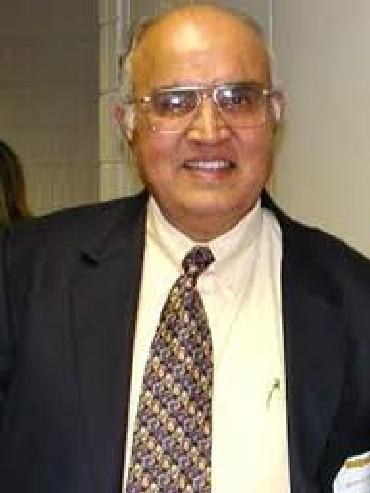Preeti Khicha in Bangalore
Entrepreneur and venture investor Kanwal Rekhi has many accolades to his credit. After selling his start-up firm Excelan, which manufactured smart Ethernet cards, to Novell, he spearheaded the company before returning 100x to his venture investors.
He also co-founded TiE (The Indus Entrepreneurs) to promote entrepreneurship. Now managing director of Inventus Capital, an early-growth venture firm, the entrepreneurial spirit is still alive.
How is the venture capital (VC) landscape in India different from that in the Silicon Valley?
The venture capital industry in Silicon Valley is a very well developed eco-system which has evolved over the last 50 years. This includes VCs at every level: Start-up, mid-stage, late stage and private equity. In India, the VC industry started 10 years ago and will take 20-30 years to mature.
China is far ahead of India as it liberalised much before India. Eventually, you need to have more winners coming out of India. In 2010, only one company MakeMyTrip went public on NASDAQ and from China the number of companies that went public was 40. In India, one can't go public on NASDAQ unless you go public in India.
China doesn't do that. In India, the bureaucrats and politicians have not brought in liberalisation fully and still like to control.
...
This is what it takes to become an entrepreneur
We've seen examples of companies like Groupon buying sosasta.com. When will the stage come when Indian companies will look at start-ups as acquisition targets?
It is the same issue. Companies will take the risk only if they have to. It is an issue of a maturing eco-system. Mahindra did buy Satyam but at a distressed price. Patni was bought by iGate.
So the process takes time. Someone needs to take risk and show the way. It is still early in India. I think it will take another 10 years for something like this to happen.
...
This is what it takes to become an entrepreneur
There has hardly been any product innovation, but we have seen process innovation which is mostly invisible. The Googles and Facebooks are still coming from the West. When will product innovation happen in India?
Product innovation requires a lot of venture capital. So, if I as a venture capitalist can see good returns in the service business in three years, then why would I put money in a product business that takes five to six years? And there are no examples of product businesses in India succeeding yet.
This is because India came out of socialism and it did not allow manufacturing of products to happen in the country for a long time. Thus, the culture developed around the service business and that is where a lot of easy money is being made.
When the easy money cannot be made in the service business, companies will have to look at newer avenues. It has started to happen already.
...
This is what it takes to become an entrepreneur
How much of a challenge is it to retain talent in a growing company and what is the best way to manage it?
It is a very big challenge. That's where the entrepreneur comes into play. He has to sell to other people to stay with him. You need to have a dual personality. If you have a business, customers, assets, you need someone to manage those.
But, you need to have dynamism to let new ideas emerge. You cannot be totally managerial as you will drive away talent.
Also, there needs to be sharing of wealth. If all the money is with the 'seth', then why would I stay, right? An entrepreneur has to share wealth through ESOPs (employee stock ownership plan).
What are the common mistakes entrepreneurs make? Any advice for budding entrepreneurs?
First, get out and engage with customers sooner than later. If you stay focused on the lab to work on your product, the market may have moved. Customer feedback is very important. Also do not underestimate competition; stay on top of it.
They can undercut you. Keep your friends close and keep your enemies closer. A lot of entrepreneurs ignore their competition. Also keep your talent and investors happy as you always need more money.
...
This is what it takes to become an entrepreneur
What is it that it makes investors uncomfortable with a founder CEO? Many still look for professionals. Some of the best-run companies in the world have been founder run: Apple, Google are a few examples.
I am a strong believer in the entrepreneur. But here is the problem. When you start a company, there are no assets, but only an idea and a dream. You need an entrepreneur who can work in that uncertain environment and make things happen.
Managers have trouble working in that environment. They are used to having the staff and someone doing the analysis.
An entrepreneur is a disrupter and an innovator, whose job is to find new ways of doing things. The manager on the other hand is a streamliner and makes sure he can get maximum use of his assets and improve his efficiency by 5-10 per cent. His job is to preserve and conserve the assets.
After a certain size you cannot afford disruption because you are likely to break it. So with entrepreneurs that is the issue with investors. You need both of them. What typically happens is that a professional is managing, while the entrepreneur is disrupting at the edges.
The US has found a way to have stability at the core of the organisation and dynamism at the fringes and India is slowly becoming like that.
...
This is what it takes to become an entrepreneur
In India, many technology start-ups have a hard time getting the next round of funding. Is it true that it is difficult for technology driven start-ups to get funding in developing countries like ours?
This may surprise you but even in the US, only 6 per cent of start-ups are venture capital backed. Almost 94 per cent of the start-ups are bootstrapped. Last year in India, we saw over 800 business plans, we did only five investments.
However, all the other VCs put together was 50 investments. However, I'm sure a lot more than 50 will succeed so a certain amount of bootstrapping happens everywhere.
In your opinion, what are the prerequisites to becoming a successful entrepreneur?
If you are going to do it for the money then it is a very tough journey. You need to have this burning desire to prove yourself. There are certain other traits that entrepreneurs need to have. One is intellectual honesty. You can fool others but you cannot fool yourself. And every day you need to reaffirm if I am on the right track.
You need to be able to be your own worst critic. The other big thing an entrepreneur needs to do is to sell.
An entrepreneur needs to sell to himself, to his spouse, to his mom, father-in-law... and then to people who work with you, and to investors who give you money, and to the customers long before the real product is out. So if you are uncomfortable selling, you will not succeed as an entrepreneur.
...
This is what it takes to become an entrepreneur
You mentioned during your discussion that everyone needs a boss; even if you are an entrepreneur you do so. Could you please explain?
The passion alone is not enough and a certain amount of discipline is brought by outside money. So if you want to pursue a dream, don't do it with your own money. A venture capitalist will ensure you focus on the right things. You need to be held accountable and you should not be doing random work.
A lot of entrepreneurs in this country look to the US for various things, and there is a big transition happening there, both on the consumer side and on the investor side. Can you share your perception on the way forward?
I think the US economy will do just fine. Two things have happened. The internet is rearranging the whole economy. The post office and newspapers are becoming obsolete. There is a fundamental change that is happening in the world economy:
The Indians and the Chinese are becoming smart and have opened their economies, which has quadrupled the amount of talent available. The US economy is adjusting to that and it is a painful adjustment.
But the US is where the smart people are as that is where the Harvards and MITs of the world are. Entrepreneurs in US are doing things we are proud of. The Zyngas and the Facebooks are still coming out of the US; they are not coming out of India and China.









article